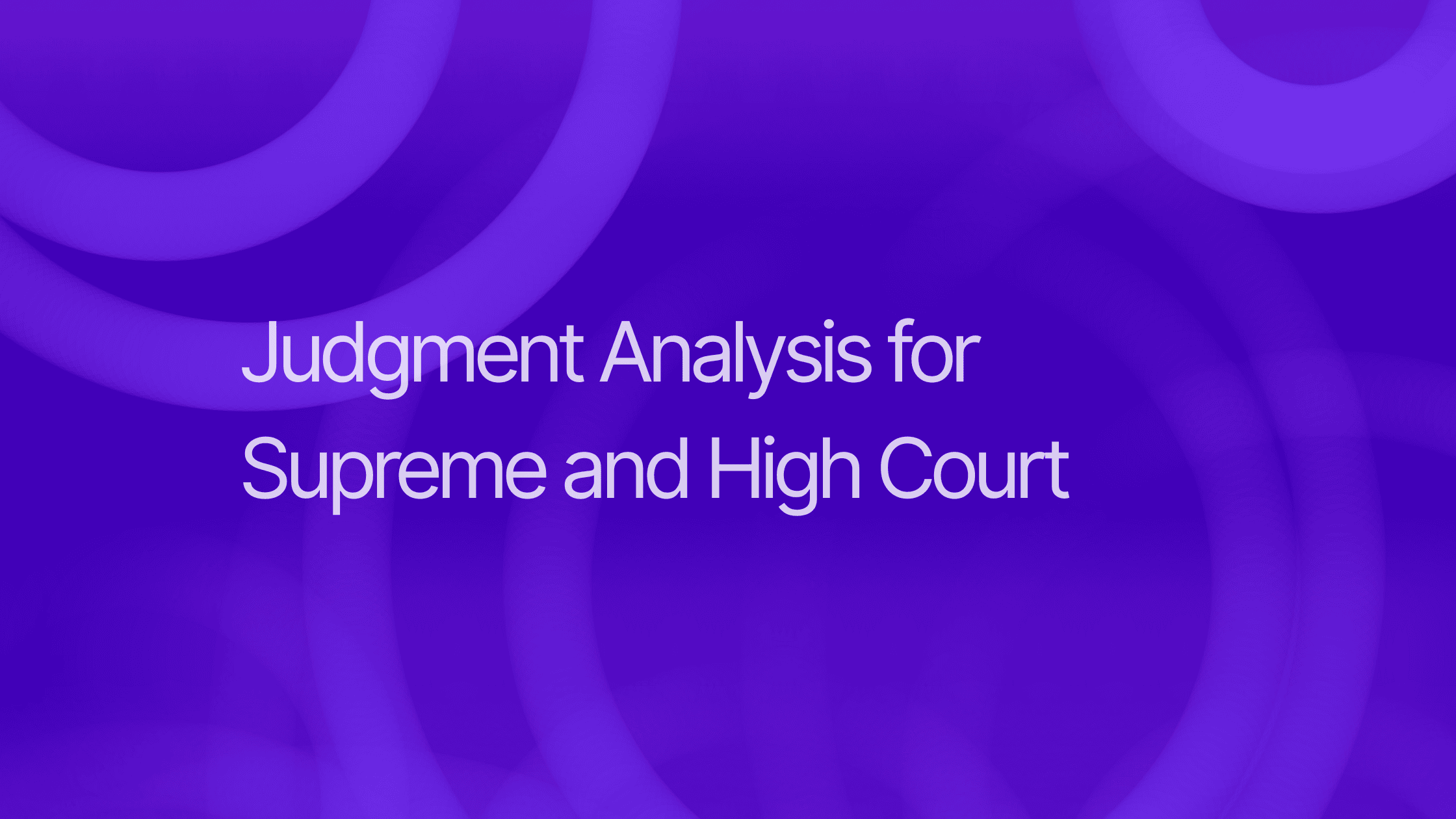Legal judgments can be dense. For lawyers, law students, and citizens alike, understanding what a court actually decided — and why — often requires combing through dozens of pages filled with procedural details, statutory references, and layered reasoning.
At LawSimpl, we believe legal information should be clear, structured, and accessible. That’s why we’ve launched Judgment Analysis — a new feature that breaks down Supreme Court and High Court rulings into digestible, organized insights.
This isn’t just a summary tool. It’s a way to make sense of judgments in a format that mirrors how legal minds actually think.
Designed for Clarity

Every judgment we process is unpacked into meaningful sections. We extract and present:
- The facts of the case – What happened, and who brought the matter before the court.
- Issues framed – The legal questions the court set out to answer.
- Relevant laws and statutes – So readers know which provisions are in play.
- Ratio decidendi – The actual reasoning behind the court’s conclusion.
- Precedents cited – Linked and contextualized.
- Final outcome – The decision, and what it means in practice.
It’s everything you’d look for in a high-quality case brief — now delivered instantly.
Built for the Legal Ecosystem
We designed Judgment Analysis with all types of users in mind.
For practicing lawyers, it speeds up research. Instead of scrolling through a 40-page PDF to find the ratio, you get the heart of the decision upfront — with links to relevant laws and precedents.
For law students, it’s a better way to study. Complex rulings become manageable. You see the structure behind the judgment, not just the words.
And for journalists, educators, and policy researchers, it means faster, more accurate interpretation of how courts are thinking about key issues — from land acquisition to civil rights.
Covers What Matters
Right now, we’re analyzing judgments from:
- The Supreme Court of India
- All High Courts across the country
Our system updates as new rulings are published, ensuring that users always have access to the latest legal thinking — in a format they can actually work with.
We’re also continuously improving how we detect statutory references, recognize judicial reasoning, and map precedents across time.
Why This Is Just the Beginning
This feature is part of a larger goal: making Indian legal content structured, explainable, and open. We see a future where legal AI doesn’t just answer questions — it shows its reasoning, understands the law's evolution, and helps people engage with the system more meaningfully.
Try It Out
If you’ve ever struggled to understand a court decision, or wanted a faster way to get to the core of a judgment, we think you’ll love this.
Visit LawSimpl.ai to explore recent cases and experience Judgment Analysis in action.
It’s time court decisions became easier to understand — not just for lawyers, but for everyone.
